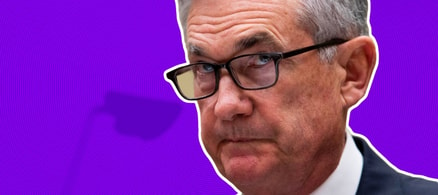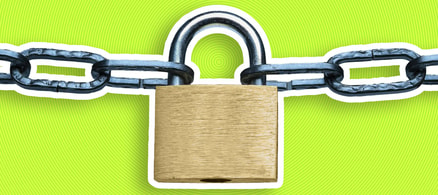What young Americans want from banks
Although Gen Z and millennials do value low fees (31% and 36%, respectively) more than any other factor, they don't prioritize them as much as older generations.
Meanwhile, more than 60% of Gen Z and millennials would consider switching banks for better digital capabilities, like mobile apps. Other factors include better rates and cash incentives and rewards.
Mark Riddle, director of research and content delivery at the BAI, notes that younger Gen Zers, who may not have income of their own, are less likely to care about rates and less likely to own a credit card.
The younger generations were also much more likely to consider banking with a non-traditional player, such as Amazon, Google or PayPal.
Riddle adds that the rise of online banking means younger Americans are less loyal to one financial institution and often have accounts with multiple institutions, which means increased competition for big banking players.
Streamline your debt repayment
Having a single loan to pay off makes it easier to manage your payments, and you can often get a better interest rate than what you might be paying on credit cards and car loans.
Fiona is an online marketplace offering personalized loan options based on your unique financial situation.
When you consolidate your debt with a personal loan through Fiona, you can roll your payments into one monthly installment. Find a lower interest rate and pay down your debt faster with Fiona today.
Find your rateBanks that share your values
For Carissa Cabrera, a 28-year-old marine conservationist based in O'ahu, Hawaii, choosing the right bank comes down a question of values.
“It's extremely important to me that the company shares the same values in environmentalism,” Cabrera says in an email. “At this point in my life, I don't support brands or products that don't include some form of sustainable and ethical practice.”
The main thing Cabrera considers in a financial institution is whether or not it’s funding the fossil fuel industry.
The BAI reports that more than half of Gen Zers and millennials would switch financial service organizations for a higher commitment to ESG and DEI. In comparison, only a third of Gen Xers and less than 20% of baby boomers say they would do the same.
ESG (environmental, social and governance) is a system for measuring a company’s commitment to bettering society, while DEI (diversity, equity and inclusion) refers to measures that are specifically meant to promote inclusion for groups such as people of color and the LGBTQ+ community.
Cabrera currently uses the Bank of Hawaii for her business — an environmental media company called The Conservationist Collective — and a local credit union for her personal accounts.
She adds that members of The Conservationist Collective may also have accounts with institutions like Aspiration, a green banking alternative.
More: Credit unions vs. banks
Sustainable banking
Sustainable banking means different things to different people, notes Pete Hellwig, co-founder of Atmos Financial, an eco-friendly online banking alternative.
“When I say sustainable banking, I'm referring to the act of using your money to support environmentally friendly or environmentally positive projects or assets,” he explains.
Atmos funds climate-positive infrastructure and gives customers cash back on sustainable brands.
Hellwig notes that the average customer is in their late 30s, but their clients range from 18 to 80.
“I mean, [young people] are changing the world, right?” says Riddle. “It's no longer acceptable for publicly traded companies not to address ESG or DEI. And the younger generations are just more in tune to … social justice.”
However, Riddle says it may be difficult for financial institutions to measure and prove these commitments.
You can check a bank’s certifications if you’re looking for a socially responsible institution.
For example, Atmos is fossil-free certified and is a member of the Conservation Alliance. Amalgamated Bank is a Certified B corporation, a designation that indicates high transparency and social and environmental performance, and is part of the Global Alliance for Banking On Values.
Stop overpaying for home insurance
Home insurance is an essential expense – one that can often be pricey. You can lower your monthly recurring expenses by finding a more economical alternative for home insurance.
SmartFinancial can help you do just that. SmartFinancial’s online marketplace of vetted home insurance providers allows you to quickly shop around for rates from the country’s top insurance companies, and ensure you’re paying the lowest price possible for your home insurance.
Explore better ratesBig banks need to adapt to keep up
Only a third of Gen Z completely agreed with the statement that their financial service organizations were effectively meeting their needs.
The biggest business challenges for bankers in 2022 is to improve the customer’s digital experience and acquire new customers, reports the BAI.
By 2024, customers expect 61% of their banking business to be digital and 39% human-assisted.
Riddle emphasizes that banks need to invest in multiple channels — they can’t solely prioritize digital, for example — and have to cater to all generations.
As for Cabrera, she says younger generations have inherited a dying planet, and it’s their responsibility to find solutions to the climate crisis.
“We know that if we don't do something now, we will lose the chance to do anything at all.”
Sponsored
Follow These Steps if you Want to Retire Early
Secure your financial future with a tailored plan to maximize investments, navigate taxes, and retire comfortably.
Zoe Financial is an online platform that can match you with a network of vetted fiduciary advisors who are evaluated based on their credentials, education, experience, and pricing. The best part? - there is no fee to find an advisor.








